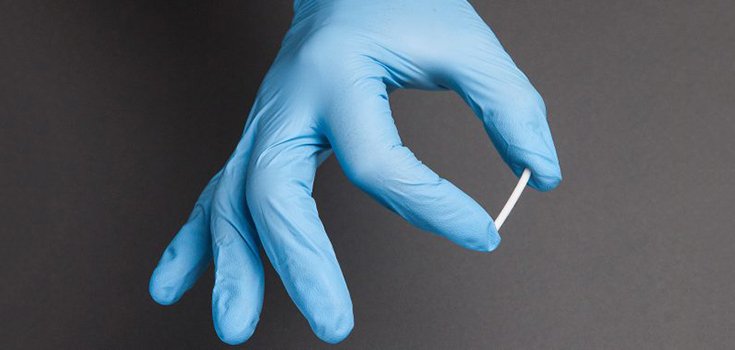Implant that Weans Addicts off Opioids Wins FDA Approval

An implant that releases heroin and other opioid drugs into addicts’ bodies to help them wean off the substances was approved by the FDA recently, and it could mean thousands of lives spared.
The device, called Probuphine, is implanted into the arm and steadily releases buprenorphine, a drug that helps reduce opioid cravings and prevent withdrawal symptoms over 6 months. Buprenorphine had previously only been available in pill form.
FDA commissioner Dr. Robert M. Califf said May 24:
“Opioid abuse and addiction have taken a devastating toll on American families. We must do everything we can to make new, innovative treatment options available that can help patients regain control over their lives.”
According to Califf, Probuphine “provides the first-ever implantable option” to help patients maintain addiction treatment. The beauty of the device is that it ensures that patients never miss their daily dose, nor will they be able to sell their supply to recreational users or other addicts.
The unfortunate aspect of Probuphine is that is basically substitutes one drug for another, much like the opioid Suboxone relieves drug addicts of their cravings, and methadone serves as a substitute for methamphetamine in patients. Suboxone is a combination of buprenorphine and naloxone. Both Suboxone and methadone can be abused.
To many whose lives have all but been destroyed, it might be worth the risks.
Dr. Nora Volkow, director of the National Institute on Drug Abuse at the National Institutes of Health, told CNN:
“Scientific evidence suggests that maintenance treatment with these medications in the context of behavioral treatment and recovery support are more effective in the treatment of opioid-use disorder than short-term detoxification programs aimed at abstinence.”

Probuphine could be available in a month. The drug’s labels are already being printed out, and on May 28, trainings began for doctors who wish to learn to insert Probuphine – 4 matchstick-size rods – under the skin.
It’s unclear at this point whether insurers will be willing to cover it. The device costs $4,950, or about $825 a month.
Dr. Sarah Wakeman, medical director of the Substance Use Disorder Initiative at Massachusetts General Hospital called Probuphine’s approval “fantastic news.” Her only real concern is that the device only delivers 1 dose of 8 mgs of buprenorphine daily. She prescribes between 4 mg and 24 mg, depending on how much a patient needs to fight opioid cravings.
“This is wonderful tool for someone who doesn’t want to take a daily medication. If you need to add daily medication on top of Probuphine, you lose the added benefit that would come without needing that daily pill.”
Other addiction experts worry their patients will think that Probuphine is enough, and won’t go to the check-ups or counseling appointments that are part of most recovery programs.
Dr. Indra Cidami, who treats addiction patients in New Jersey, said:
“Probuphine is set up for failure in that way because the patient will be seen after six months and in the meantime, they’re not going to be following up with therapy. And that means it’s not going to be medication assisted therapy — it is medication maintenance only.”
Cidami said she will hold off on using the implant.
Probuphine’s maker, Braeburn Pharmaceuticals, and the FDA say they expect patients to be in counseling while using the implant.
Image Sources:
